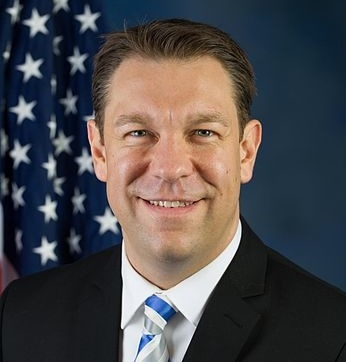Congressman's cocaine bust illuminates race and gender sentencing disparities

By Brentin Mock, Colorlines
This week, freshman Florida Congressman Trey Radel pleaded guilty to cocaine possession and was sentenced to one year of probation after buying 3.5 grams of cocaine from an undercover agent in D.C.'s Dupont Circle neighborhood. To put that in perspective, when former D.C. Mayor Marion Barry was arrested for smoking a "little speck" of crack cocaine that was not in his personal possession back in 1990, he was sentenced to six months in a federal prison. That about sums up the racial disparity crisis between cocaine and crack possession sentencing in our nation, which despite recent reforms, still allows white men leniency in the courts compared to African-Americans.
Rep. Radel was known as the hip-hop lovin' politician who loved to Tweet, kind of like Cory Booker, but without receiving the same criticism for it. But his record in Congress firmly reflected the extreme conservative agenda of the Tea Party. Despite his co-sponsoring of a bill to reform mandatory minimum sentencing -- from which he would benefit had he been arrested with that legislation in place -- he also voted for a farm bill amendment that would allow states to drug test all food stamp recipients.
House Minority Leader Nancy Pelosi pointed out the irony of Radel's arrest given his support of that amendment. "It's really interesting it came on the heels of Republicans voting on everyone who had access to food stamps get drug tested. It's like, what?" said Pelosi at a Buzzfeed news event.
Last week, The Sentencing Project released a report on the impact of the federal prohibition of welfare benefits for those convicted of felony drug crimes. Called "A Lifetime of Punishment," the report reminds us that as of 2011, three-quarters of states have a full or partial prohibition on TANF benefits and 34 states have a full or partial SNAP benefits prohibition for those with felony drug convictions. The federal welfare reform law allows states to opt out or modify the felony drug prohibtion. In Radel's state of Florida, thouse found guilty of felony drug possession are allowed to collect TANF benefits, but not those convicted of felony drug manufacturing or distribution.
This federal ban, passed unanimously by both parties, has been in place in various states since 1996. The Sentencing Project's analysis focused on women with felony drug convictions in the 12 states with a full ban on TANF benefits -- Arkansas, Alabama, Delaware, Georgia, Illinois, Missouri, MIssissippi, Nebraska, South Carolina, South Dakota, Texas and West Virginia. They found that over 180,000 women in those states have been affected by the benefits ban since 1996 -- 65,900 in Texas, and 58,100 in Georgia. Loss of SNAP eligibility is similar, says the report.
As with all things related to the so-called War on Drugs, the benefits ban has impacted black and Latino Americans more roughly than whites. As of 2011, 40.7 percent of state prisoners were African-Americans, and 21.1 percent were of Hispanic origin. The Sentencing Project's report says that this translates to a racially disproportionate impact on who's left out of welfare benefits in those states with the ban.
Since women comprise the majority of TANF and SNAP benefit recipients, they have been more likely impacted by these prohibitions than men. The War on Drugs in general has had a disproportionate effect on women -- by 2011, over a quarter of women in state prisons were there for drug offenses, while 16 percent of men were incarcerated for the same crimes.
After his arrest, Radel said "As the father of a young son and a husband to a loving wife, I need to get help so I can be a better man for both of them."
Had he been convicted of drug possession as a poor, black mother in another state, he'd need a lot more help, especially with finding a way for his family to eat.
